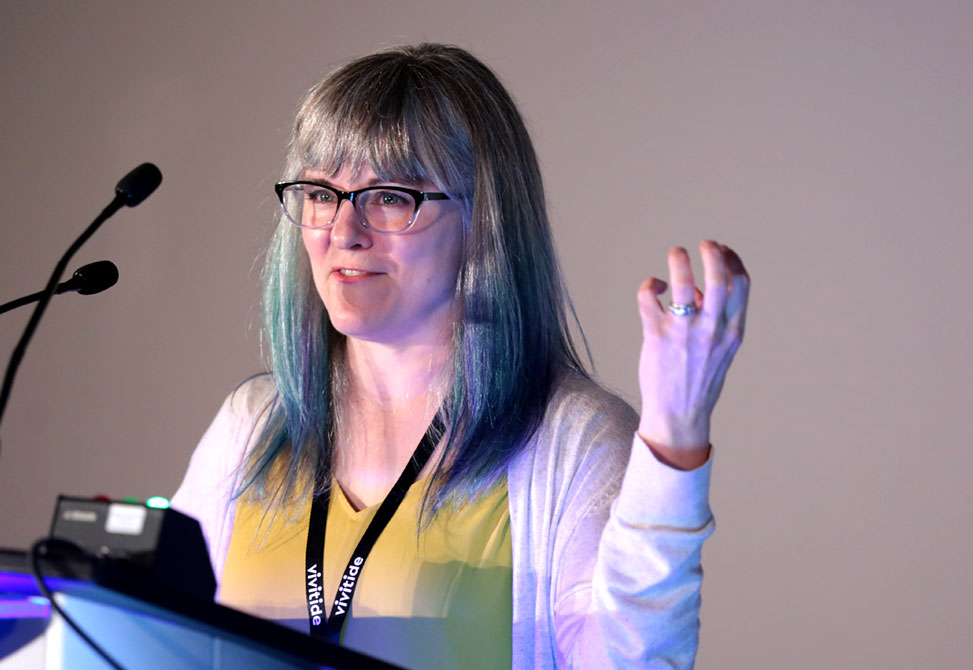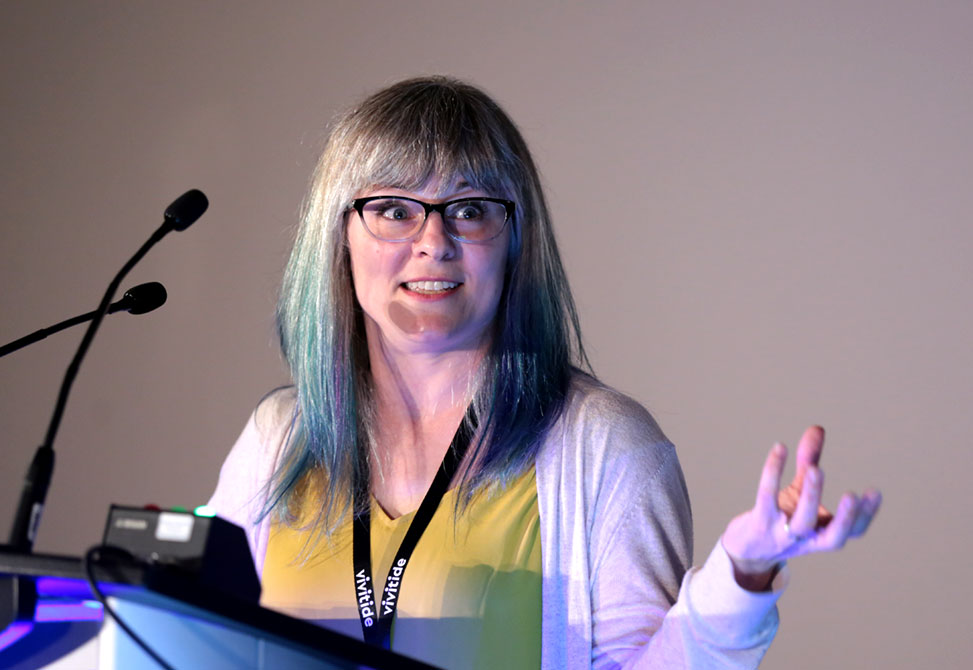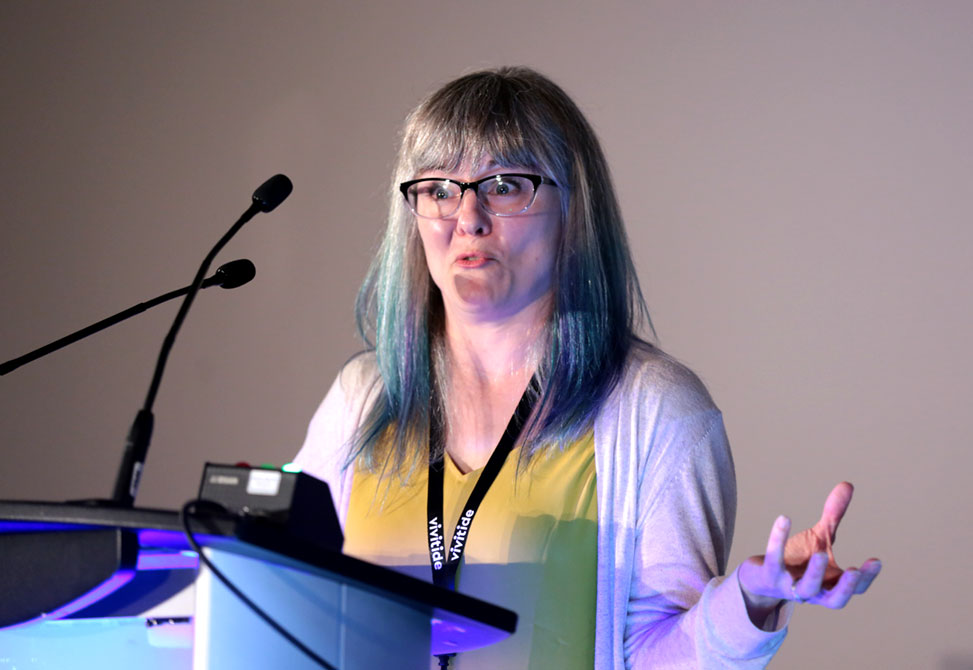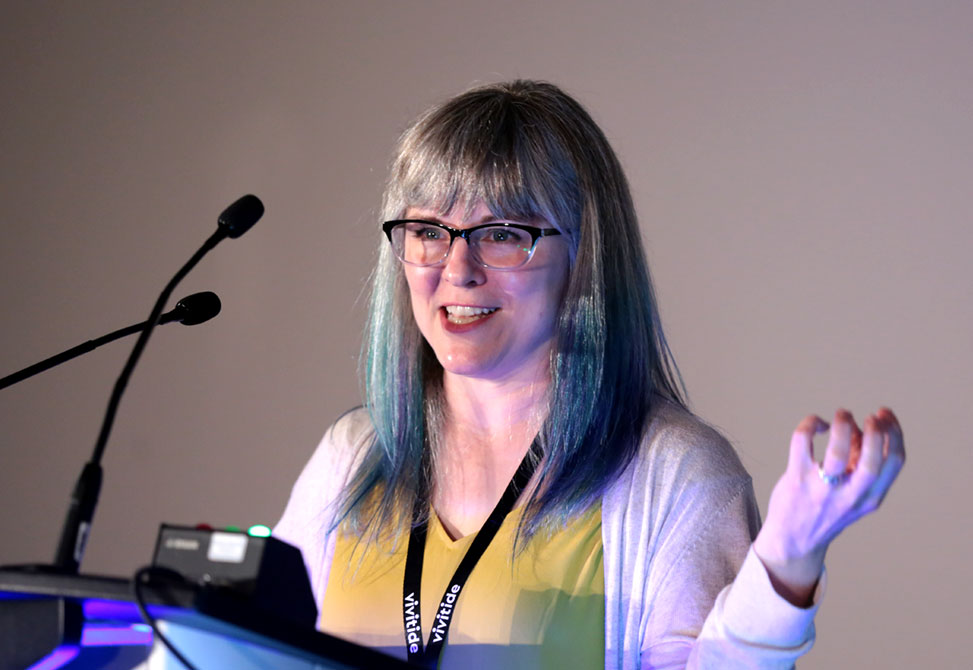Laurie Parker
University of Minnesota
Talk Session: SESSION 1: POST-TRANSLATIONAL MODIFICATIONS
Date: Sunday, June 12, 2022
Talk Time: 09:10 am - 09:35 am
Talk Title: Real-Time Kinase Assays in vitro and in Cells Using Fluorophore-Labeled Peptides
Our research program is broadly directed at assay development for post-translational modifications, PTMs, with a focus on protein phosphorylation by tyrosine kinases. Protein tyrosine kinases play key roles in disease and are particularly important in cancer: mutations in several protein tyrosine kinase genes have been identified as drivers of many tumor types and drugs targeted at inhibiting these enzymes represent ~20%, >$9 billion, of the current oncology market.
We use a "decoy" substrate biosensor approach, funded initially by a K99/R00 award from the NCI, in which an artificial, optimized substrate peptide is designed to report the activity of a specific enzyme in living cells. Delivery is achieved using cell-penetrating peptides, and enzymatic modification is measured using a range of readout strategies—some that require extraction of the cell contents and some that leave the cell intact. Targeting the function of the enzyme in its intracellular environment preserves protein-protein interactions, localization, and scaffolding-dependent activation, and decoy substrates provide a snapshot of enzymatic activity that circumvents the need for pre-knowledge of every endogenous substrate site.
We also develop multiplex-compatible readouts, so we can use a suite of biosensors for different enzymes in order to profile pathways. We have established our approach and laid the groundwork of a substrate development workflow to expand our repertoire of biosensors for kinases and other enzymes. Long term, our lab will maintain a pipeline of biosensor and read-out technology development while also taking an active role in studying signaling biology with our tools.
Protein phosphorylation is a crucial post-translational modification in all cells, carried out by kinase enzymes and reversed by phosphatase enzymes. It is regulated by a broad range of factors including protein-ligand and protein-protein interactions, scaffolding, and subcellular localization. Dysregulation of kinase activity leads to cellular abnormalities and disease, and thus kinases are a key target for drug discovery. Most assays to detect kinase activity are either endpoint- based and/or require lysis of cells, which loses contextual information, or require genetically encoded sensors in engineered cellular systems.
We have used synthetic, fluorophore-labeled kinase substrate sequences linked to cell penetrating peptides to deliver peptide-based biosensors to live cells and map more than one subcellular kinase activity at a time via fluorescence lifetime imaging microscopy. We have also adapted these approaches for higher throughput using a fluorescence lifetime plate reader for bulk cell suspension analysis. In related systems, we have used the phosphopeptide-SH2 interaction as a sensor for kinase activity detection by fluorescence polarization in a real-time in vitro assay. Overall, we show how synthetic peptides can be used in vitro and in cells to detect dynamic kinase activity







